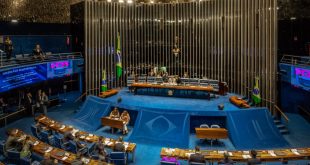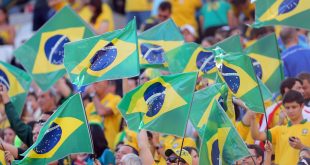FIFA’s Security Director has warned member associations that the World Cup group stages could be vulnerable to match manipulation and threats by organised crime gangs.
With six days to go until the opening ceremony and Brazil’s much anticipated clash with Croatia, Ralf Mutschke answered questions about sports corruption in a FIFA.com video. Interpol’s former Director of Regional and National Police Services, said: “Match fixing is the evil to all sports, including football.”
However, he believes the group phase is more susceptible to match fixing risks because some teams will have qualified with a game to spare or have already been eliminated, and have nothing more to lose.
“The fixers are trying to look for football matches which are generating a huge betting volume. And obviously international football tournaments such as the World Cup are generating this kind of huge volumes, and therefore, the World Cup in general has a certain risk. Nevertheless, I do not think that from the point of security, the threat of match manipulation at the World Cup is a big one,” he added.
Mutschke believes that match-fixers are most likely to target two betting markets: the Asian handicap and the over-under goals market. “I would say I am most worried about these two markets,” he said. “The match result is a possibility, but it is much harder to organise because you need so many players. With the Asian handicap or over-under, you may only need the referee or one or two players.”
Mutschke also discussed how match rigging syndicates would approach players and work on them over a so-called “grooming period”. He urged clubs to be aware of unknown sponsors and do their research. He also pointed out that each World Cup match would be heavily scrutinised for strange betting movements.
“We are assessing each single match against the vulnerability, against the risk level, and therefore we established the risk management system to allocate to each match certain criteria and determine the level of risk. We are also looking to the betting market with our daughter company, Early Warning System, so they are monitoring all matches in real time, if there is any strange, odd movements in order to identify any match fixing.”
This coincides with recent New York Times and Sunday Times investigations, which alleges that a match fixing syndicate involving referees manipulated matches in the lead up to the 2010 World Cup in South Africa, and that Mohamed Bin Hammam made payments to FIFA executive members in order to secure votes for Qatar’s 2022 bid. The Supreme Committee for Delivery and Legacy (SCDL) has vehemently denied any involvement or knowledge of corruption.
“Following today’s newspaper articles, we vehemently deny all allegations of wrongdoing. We will take whatever steps are necessary to defend the integrity of Qatar’s bid and our lawyers are looking in to this matter. The right to host the tournament was won because it was the best bid and because it is time for the Middle East to host its first FIFA World Cup,” a SCDL statement read.









